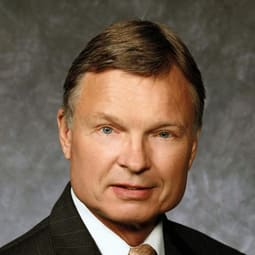
Daniel W. Armstrong
R.A. Welch Distinguished Professor, Department of Chemistry and Biochemistry, University of Texas at Arlington, USA
False

R.A. Welch Distinguished Professor, Department of Chemistry and Biochemistry, University of Texas at Arlington, USA
The secret to successful interdisciplinary collaboration? There is no secret, just a decision: you can either remain isolated, self-acquiring knowledge and raising funds (which can be a costly and lengthy process), or you can collaborate with individuals/groups from different fields to increase productivity, decrease costs, and help you reach solutions at a faster pace. Working amongst others also broadens your overall knowledge, which could be applied to future research projects. When interdisciplinary projects work – which is often – problems are solved, publications are produced, and everyone is happy.
Fostering interdisciplinary working? Finding productive scientists who are already doing this, rather than those who focus on “scientific politics” – which is contrary to common practice, especially in academic research. Forcing interdisciplinary work that slows progress and does little to solve problems is deleterious, which unfortunately is the approach taken by most funding agencies and some universities and companies. By putting resources where they’re producing the best results in an optimal timeframe is the logical approach to take – hence, it is not often done other than in cases of dire national emergencies.
Biggest challenge facing the field? In the US, it’s the decreasing production of PhD analytical scientists – especially separation scientists. This is somewhat nonsensical as the most prevalent jobs in chemistry are in separations, mass spec, and combinations of the two. Numerous companies are having to hire people that aren't trained analytical scientists to complete analytical research projects. When graduates have multiple job offers up to a year before graduating whereas those in other disciplines have nothing, you know that something is out of balance.
Receive the latest analytical scientist news, personalities, education, and career development – weekly to your inbox.

False
False
False